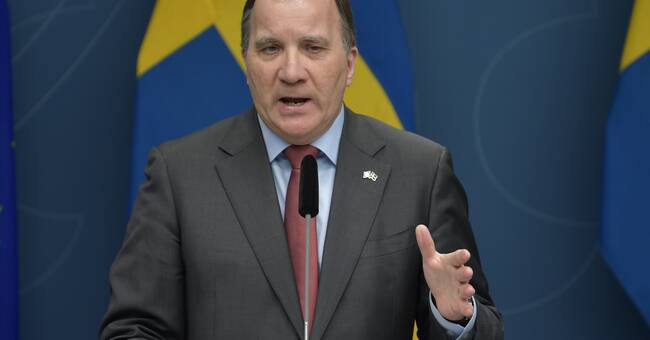A short-term gain can sometimes create trouble in the future.
This is often the case in politics and it becomes particularly clear when it comes to the government's proposal for new migration laws.
Despite the fact that the situation at times seemed almost hopeless for the government where the Green Party threatened to resign and the Liberals to leave the January cooperation, the government has finally managed to come up with a proposal that all parties involved seem ready to release.
The Green Party says they are satisfied with the entirety of the proposals.
Although the Liberals are critical to some extent, they do not consider the proposal a violation of the January agreement.
Can put sticks in the wheel before the election
Prime Minister Stefan Löfven can thus breathe a sigh of relief.
The threats of a government crisis have once again piled up like a soufflé: the Green Party will not leave the government on the migration issue and the Liberals will remain in the January cooperation until the autumn budget.
Stefan Löfven and the government thus look set to remain in the parliamentary elections next year.
In that sense, today's announcement is a clear success for Löfven.
But at the same time, the compromises with the Green Party can put a brake on the wheel for the Social Democrats in next year's election campaign.
The party has sharpened its asylum policy in recent years and both Löfven and other ministers have spoken of the need to reduce Swedish asylum reception.
Löfven has often emphasized the importance of order in migration policy, that a no is a no.
But today's message paves the way for a completely different debate.
The Green Party has succeeded in pushing through a proposal which means that unaccompanied minors who have had their asylum application rejected will be able to obtain a residence permit through a new so-called humanitarian protection basis.
The moderates therefore accuse the government of introducing an amnesty for unaccompanied minors.
Both the Moderates and the Sweden Democrats also claim that the government's policy is generally too generous and will lead to increased asylum reception, contrary to what the Prime Minister has previously said.
SD can win new voters
Today's announcement from the government thus means that the political battle over refugee policy is gaining new momentum.
And it is a battle that will run into next year's election campaign.
Expect that above all the Moderates and the Sweden Democrats will attack the government's asylum policy and promise tightening if they win the election.
Voter opinion is also clear on this issue.
A clear majority of voters want to see a more restrictive migration policy.
At the same time, this is the issue where the Sweden Democrats have by far the greatest trust among voters.
The more important this issue becomes in an election campaign, the greater the opportunities for the Sweden Democrats in particular to win new voters.
The Social Democrats, on the other hand, hope that the refugee issue will lose significance in the elections next year.
The hope is that the gradual decline in the number of asylum seekers to Sweden in recent years will make the issue less important for voters in the election campaign.
We know nothing about this today.
On the other hand, it seems clear that the government can get its proposals through the Riksdag.
If the Law Council gives the go-ahead, the bill can probably be piloted through the Riksdag through so-called jumping majorities.

